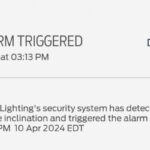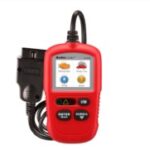The Digital Motor Electronics (DME) system, also known as the Engine Control Unit (ECU), is the brain of your BMW’s engine. A malfunctioning DME can lead to a variety of performance issues. This article will delve into the common Dme Bmw failure symptoms, potential causes, and solutions to help you keep your BMW running smoothly.
The DME is a sophisticated computer that manages vital engine functions, including fuel injection, ignition timing, and emissions control. It constantly monitors various sensors and adjusts engine parameters to optimize performance and fuel efficiency. When the DME BMW malfunctions, it can significantly impact your driving experience.
Common DME BMW Failure Symptoms
A failing DME can manifest in various ways. Recognizing these symptoms is crucial for early diagnosis and repair:
- Engine Misfires: An inconsistent firing pattern can cause the engine to stumble, hesitate, or stall. This is often a result of the DME failing to deliver the correct signals to the spark plugs.
- Reduced Fuel Efficiency: A malfunctioning DME can disrupt the optimal air-fuel mixture, leading to poor gas mileage.
- Difficulty Starting: The DME is responsible for initiating the engine start sequence. A faulty DME may prevent the engine from cranking or starting altogether.
- Increased Emissions: A poorly functioning DME can cause incomplete fuel combustion, resulting in higher emissions and potentially triggering the check engine light.
- Loss of Power: The DME controls engine power output. A failing unit can lead to noticeable power loss and sluggish acceleration.
While these are common indicators of DME issues, they can also be attributed to other problems. A professional diagnostic scan is necessary to pinpoint the root cause.
What Causes DME BMW Failure?
Several factors can contribute to DME failure:
- Component Wear and Tear: Like any electronic component, the DME is susceptible to wear and tear over time. Exposure to high temperatures and vibrations can degrade its internal circuitry.
- Moisture and Corrosion: Moisture intrusion can lead to corrosion on the DME’s circuit board, causing shorts and malfunctions.
- Electrical Overloads: Power surges or voltage spikes can damage sensitive electronic components within the DME.
- Manufacturing Defects: In rare cases, a DME may fail prematurely due to a manufacturing defect.
Diagnosing and Addressing DME BMW Issues
If you suspect your BMW is experiencing DME problems, it’s essential to seek professional help. A qualified technician can perform a comprehensive diagnostic scan using specialized software to identify any fault codes stored in the DME’s memory.
Solutions for DME problems can range from software updates and repairs to complete DME replacement. In some cases, a simple repair might suffice, such as replacing a faulty sensor or repairing a damaged wiring connection. However, if the DME is severely damaged, replacement might be the only option.
Conclusion
The DME is a critical component of your BMW’s engine management system. Understanding the common DME BMW failure symptoms, potential causes, and the importance of professional diagnosis is vital for maintaining your vehicle’s performance and reliability. If you notice any unusual engine behavior, don’t hesitate to consult a qualified BMW specialist for prompt diagnosis and repair. Ignoring DME problems can lead to more extensive and costly repairs down the road.


